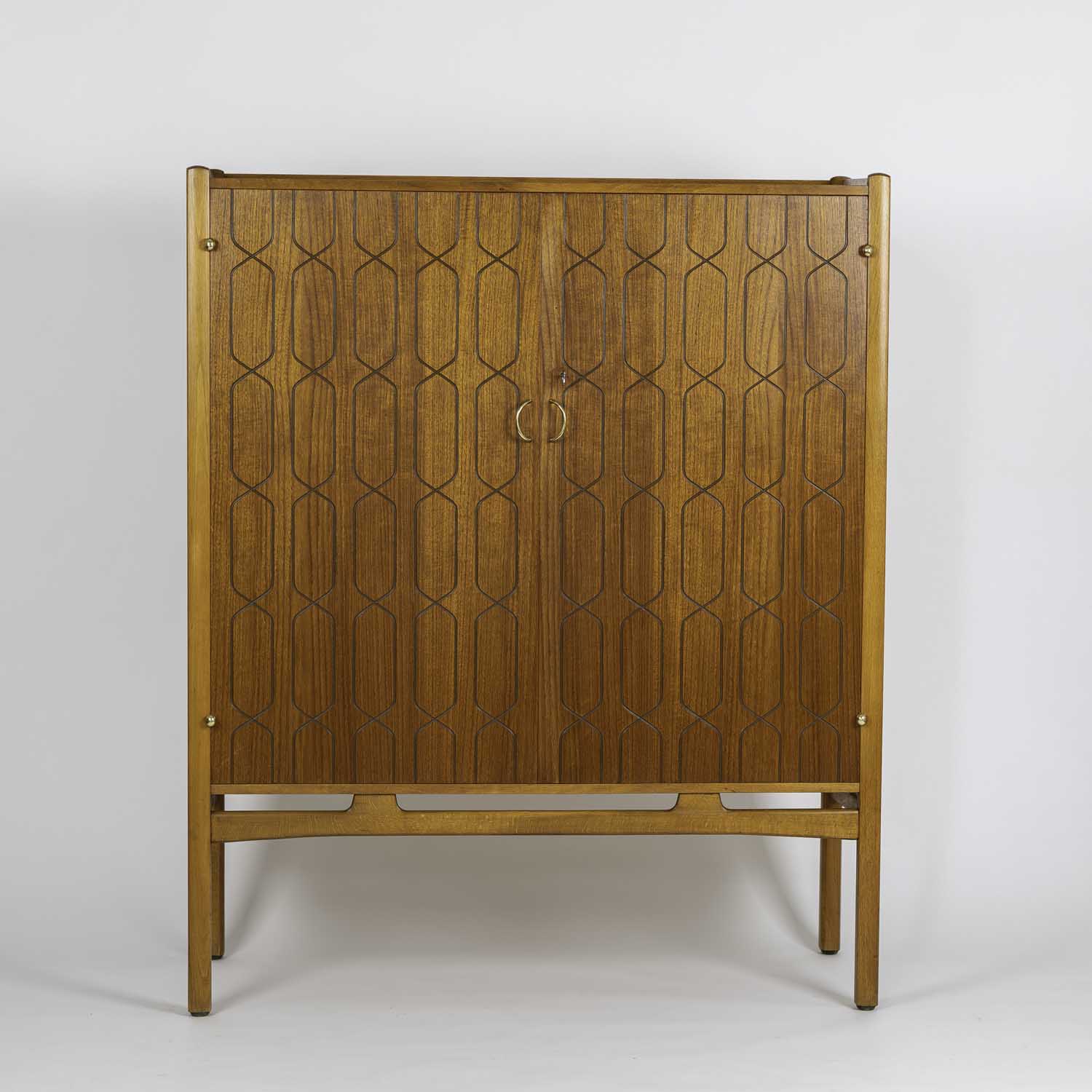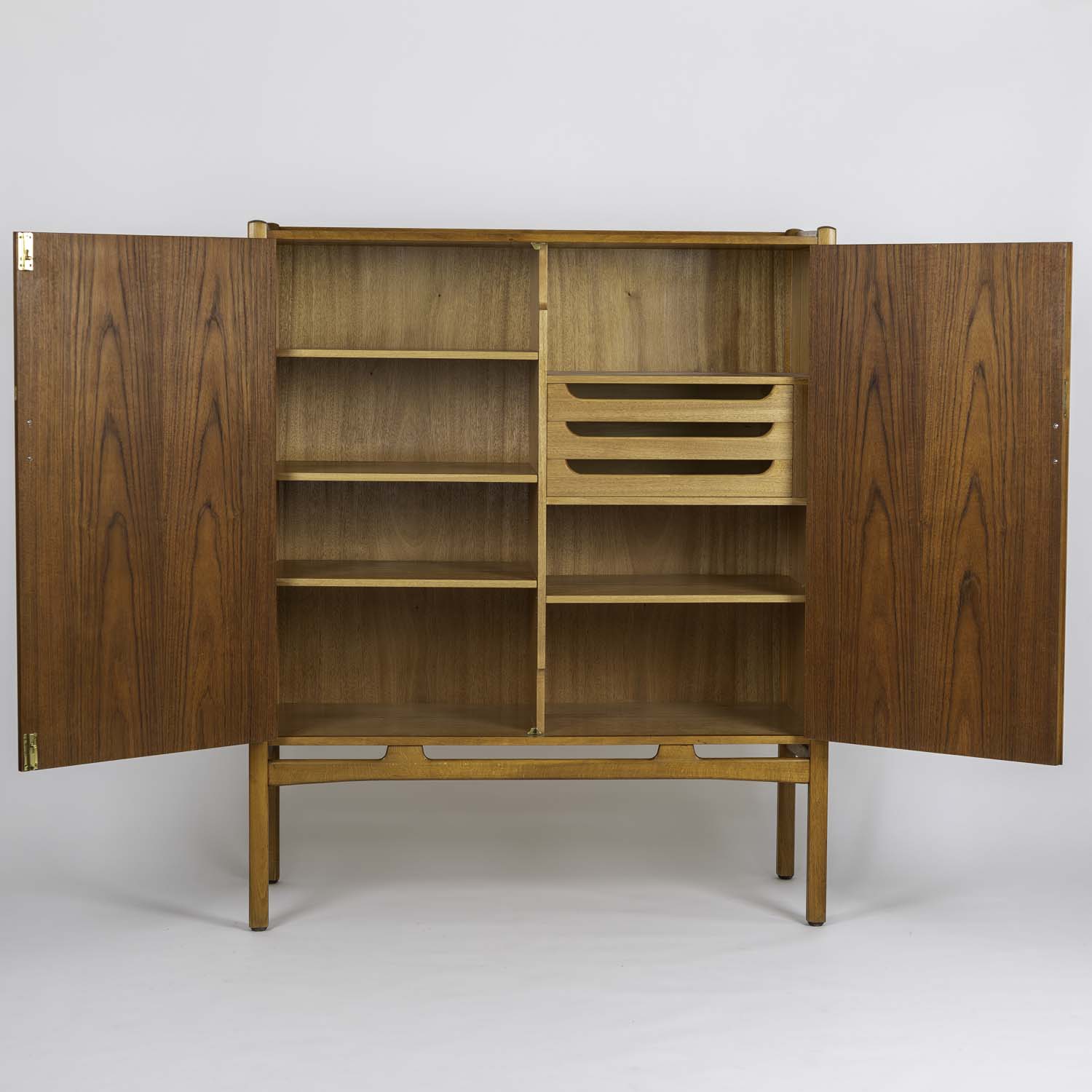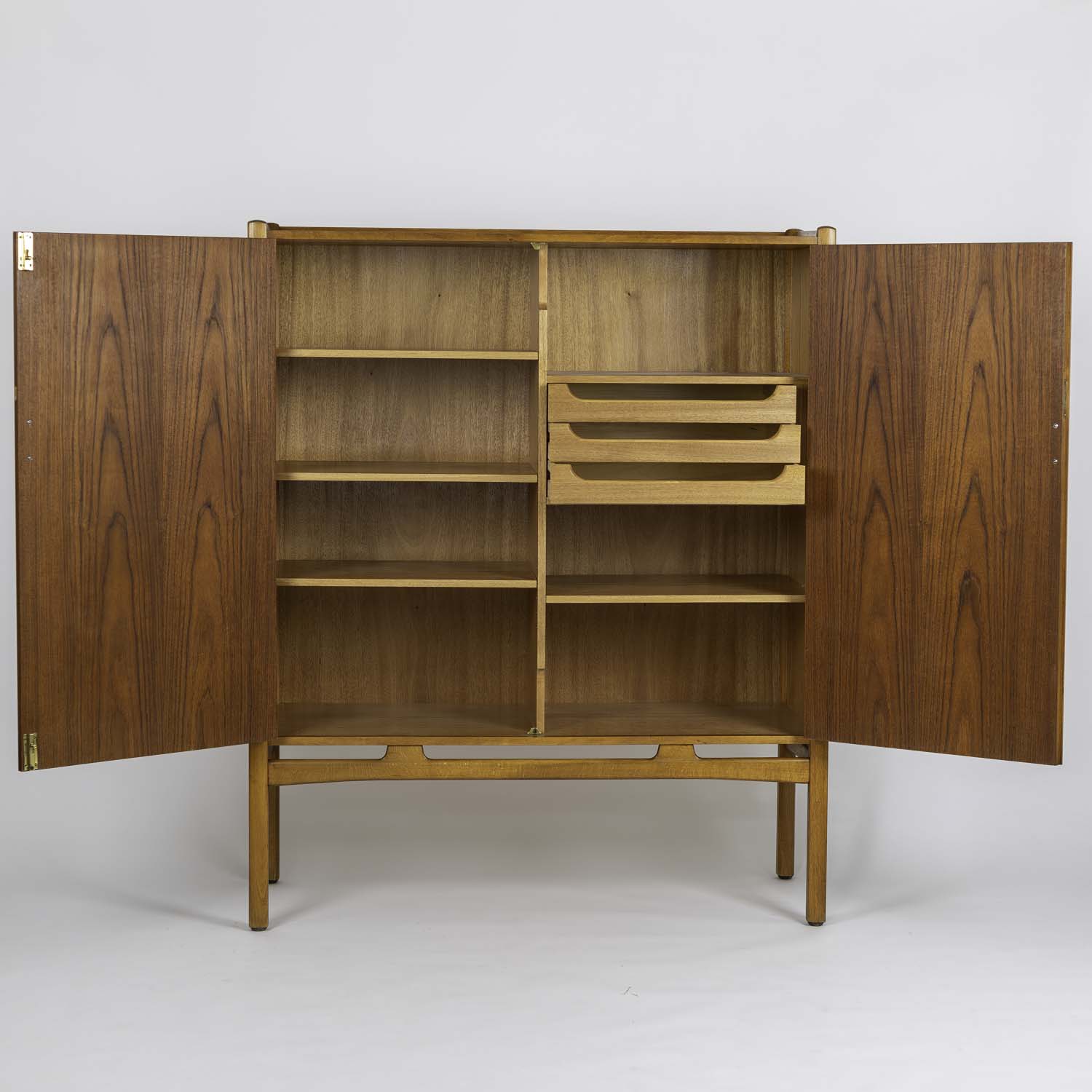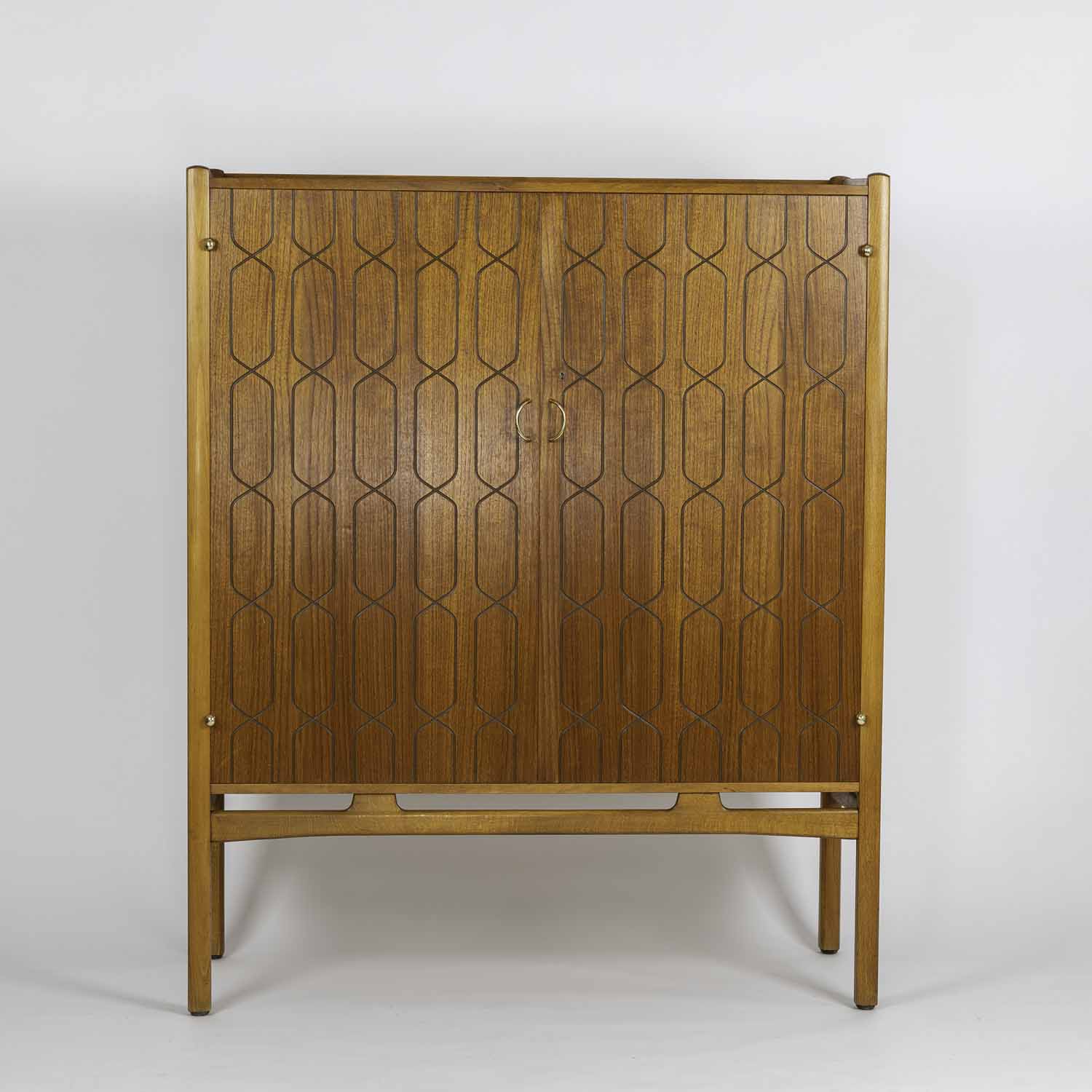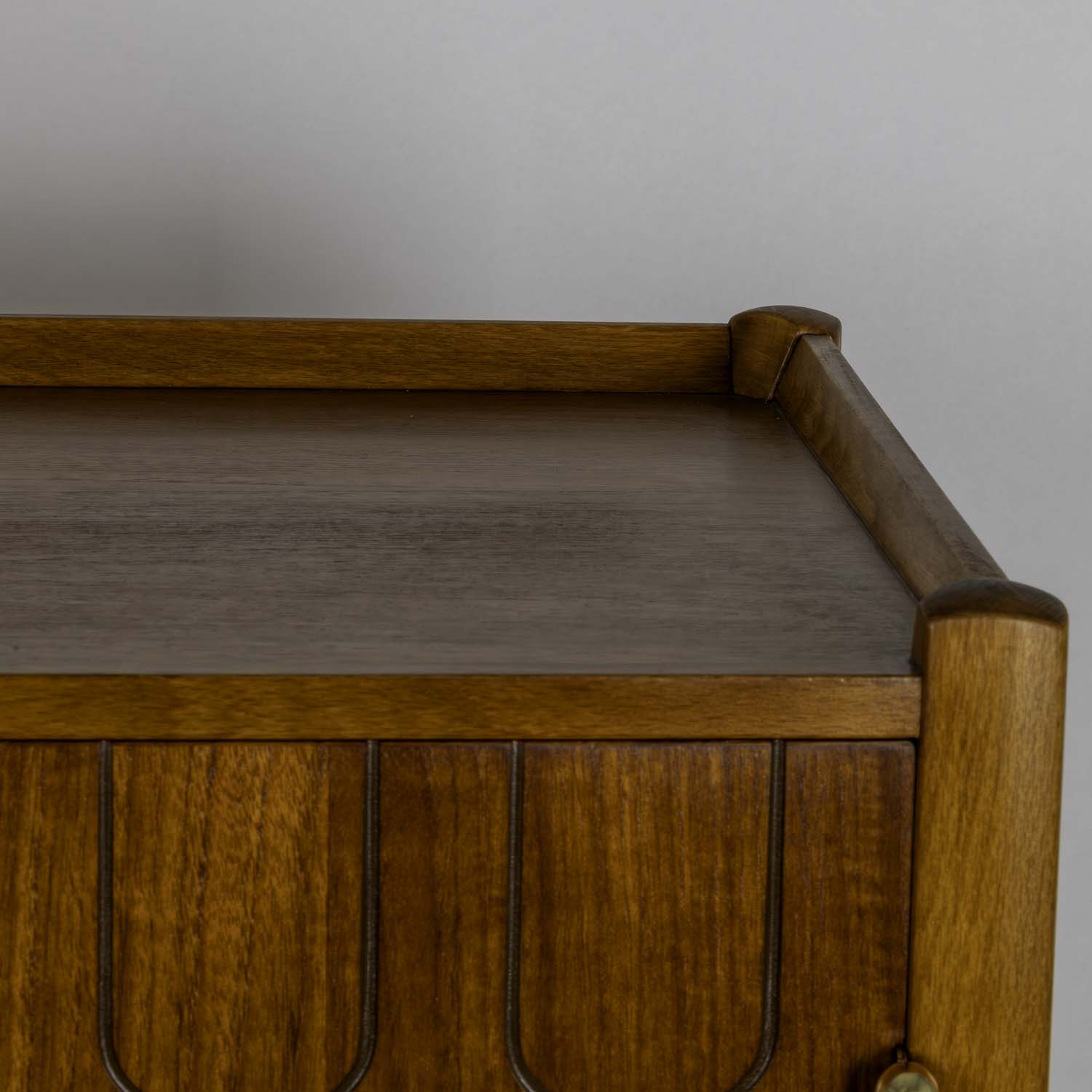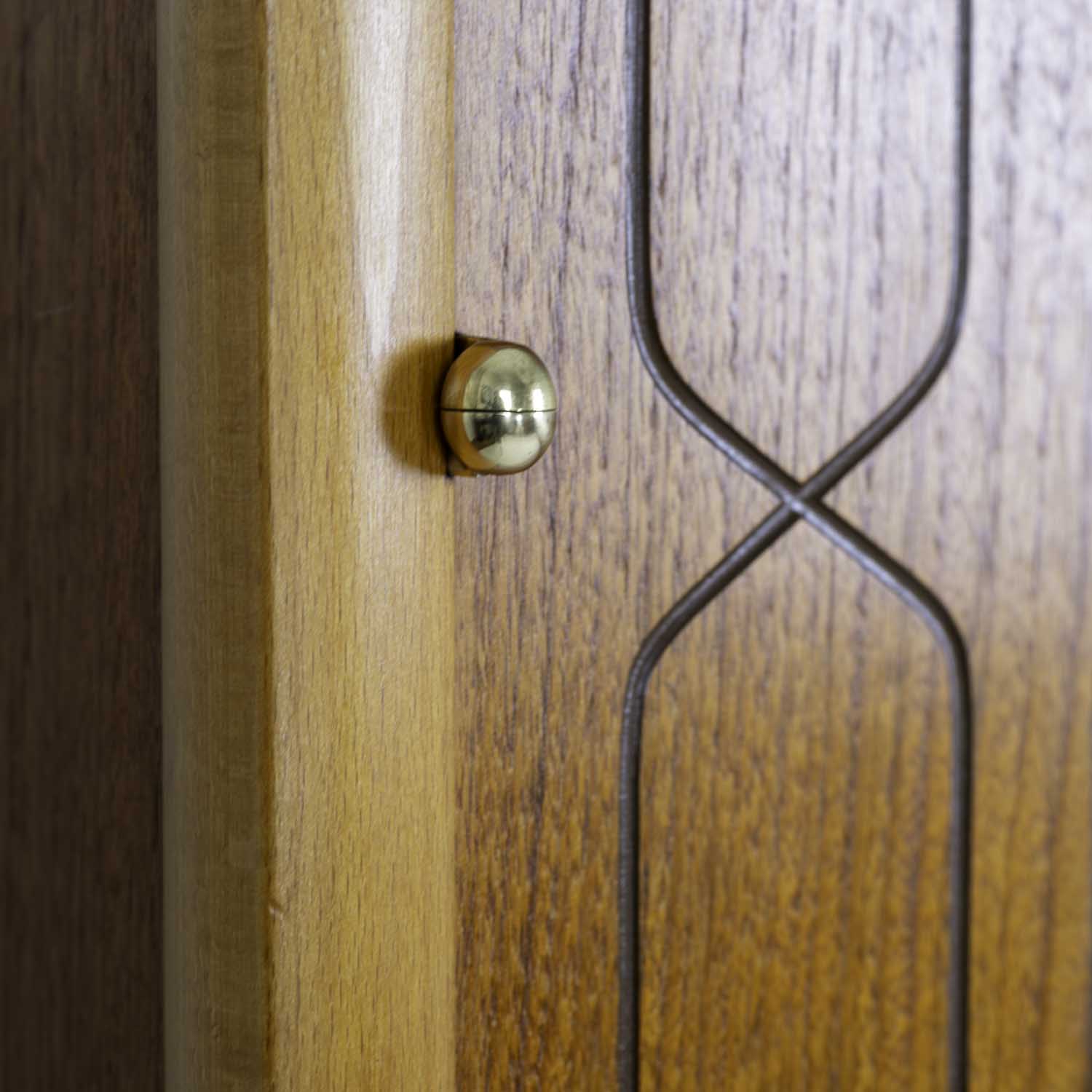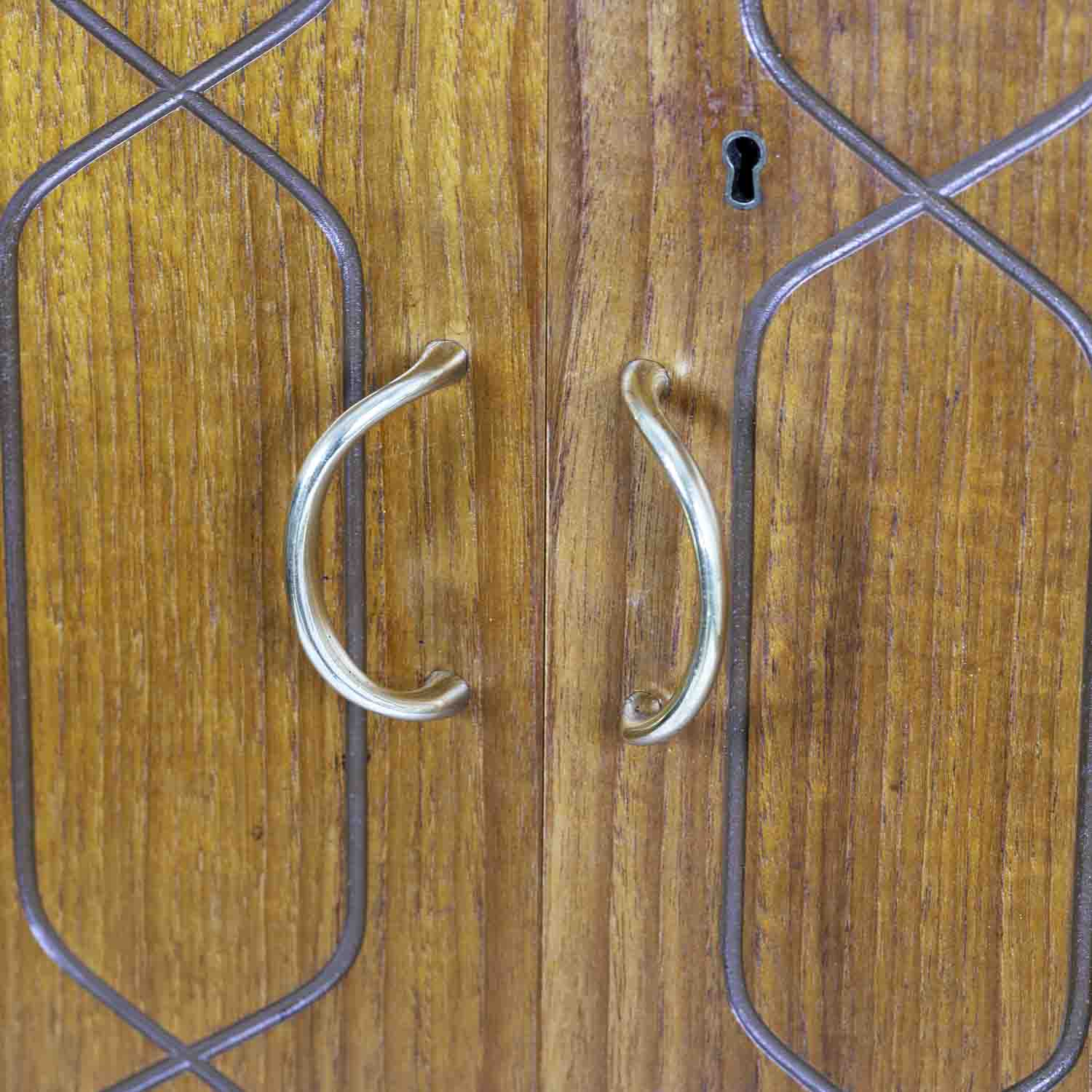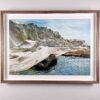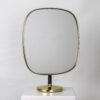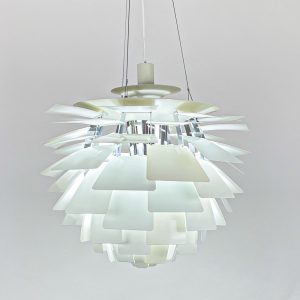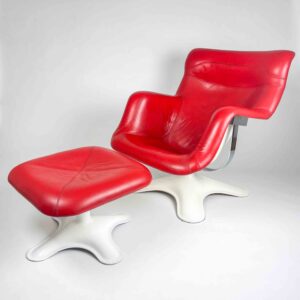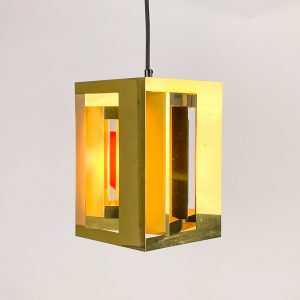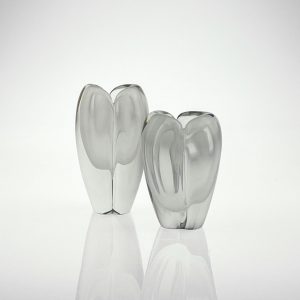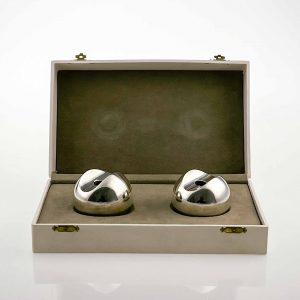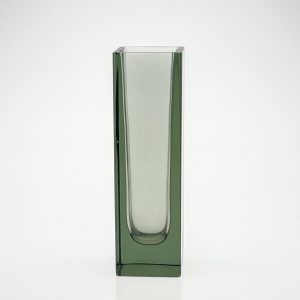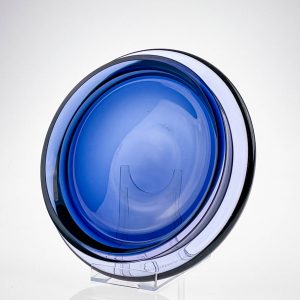| Marked | Unmarked, well known design. |
|---|---|
| Execution | Westbergs Möbler in Tranås Sweden circa 1953 |
| Condition | Beautiful all original condition. |
| Dimensions | Height 141 cm |
| Literature | Andreas Siesing, Svenska möbler: folkhemsform i ull, jakaranda, furu och bok 1949–1970 p. 492 |
David Rosén – Teak and Beech wood Cabinet “Napoli” – Westbergs Möbler, Tranås Sweden circa 1953
SOLD
Out of stock
A rare Teak and Beech wood cabinet “Napoli”. Designed by the Swedish furniture designer David Rosén in 1953. Executed by Westbergs Möbler in Tranås Sweden around the same period.
The doors are milled in a geometric pattern. The cabinet is fitted with bespoke round brass hinges and brass handles. The interior is fitted with four shelves and three drawers in beech wood. Original lock and key are preserved.
This cabinet is in excellent condition and has been recently restored.
About David Rosén
David Rosén (1910–1993) was a Swedish furniture designer known for his contributions to Scandinavian modernism in the mid-20th century. His work reflected the minimalist yet functional aesthetics characteristic of Swedish design during this period, and he played a significant role in shaping post-war design trends in Sweden.
Rosén is perhaps most recognized for his association with the Swedish furniture company Nordiska Kompaniet (NK), one of the most prominent department stores in Sweden, which also produced its own high-quality furniture. At NK, Rosén held the position of head designer for the furniture department, contributing numerous iconic designs. His furniture often combined traditional craftsmanship with the clean lines, light woods, and elegant functionality that became trademarks of Scandinavian design.
One of Rosén’s most celebrated designs is the “Trienna” chair, a lightweight, molded plywood chair that showcases his ability to blend form and function seamlessly. His work was often produced in woods like oak, birch, and teak, with a focus on creating long-lasting, sustainable designs that are both practical and aesthetically pleasing.
Though Rosén is less internationally known than some of his contemporaries like Alvar Aalto or Arne Jacobsen, his contributions were crucial to the development of Swedish modernism, and his pieces remain highly valued in the vintage design market today. His designs, while understated, are elegant and timeless, continuing to appeal to collectors and design enthusiasts.


